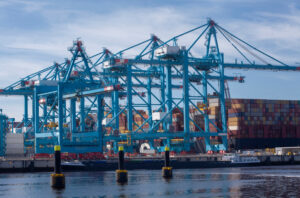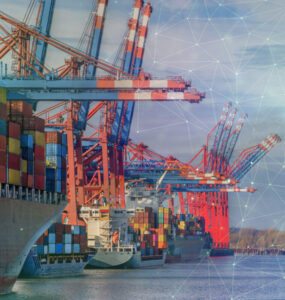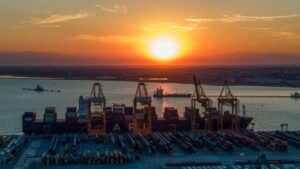-
Danish ferry operator will install scrubbers in eight more vessels in preparation for new environmental regulations
Danish ferry operator DFDS Seaways will invest as much as £34.5 million in installing scrubbers in eight more of the company’s ships next year in preparation for the introduction of new environmental regulations in 2015.
From 1 January 2015, ships operating in the Baltic Sea, the North Sea, the English Channel and the northern-European transportation network will only be able to use oil with a maximum of 0.1 percent sulphur.
A scrubber is an air pollution control device, weighing approximately 70 tonnes, which can remove sulphur from the exhaust gases produced by ship engines. The new sulphur regulations allow for alternative solutions that have the same environmental effect as using low sulphur fuel.
DFDS has previously tested a prototype scrubber on a vessel over a period of several years and will this year complete the instalment of the new sulphur removal system on three other ships. Thus 12 of the company’s ships will comply with the new environmental regulation, with a total investment of £46 million.
The installation of scrubbers on another 10 DFDS ships that are compatible with scrubber systems is also being considered.
“Society and shipping companies like DFDS have a common interest in improving the environment, while simultaneously ensuring that sea transport does not become unnecessarily expensive, which could lead to an increase in shipments being transported on already congested roads,” said DFDS CEO, Niels Smedegaard.
“Our common aim is to maintain routes and jobs in the transport network, which help connect the business community.
“However, sulphur regulations will make sea transport more expensive from 2015 onwards, and this will affect both the shipping companies and their customers.”
Oil with a maximum of 0.1 percent sulphur content is significantly more expensive than oil with one percent sulphur, which is commonly used today. Fuel prices will therefore become much more expensive and subsequently increase sea transport costs, say DFDS. This could potentially lead to freight being forced onto European roads and result in an increase in road congestion and other environmental problems.
“Therefore we must act quickly to find solutions and, preferably, transition rules for the many ships that are not suitable for scrubber installation, possibly through temporary exemptions, if shipping companies contribute to investments in solutions where possible,” explains Smedegaard.
“Secondly, we have to work together in order to ensure the development of long-term solutions, including clear and appropriate rules for the use of scrubbers and rules that provide companies with a secure basis for deciding on investments.”
“Otherwise, it would be financially irresponsible for shipping companies to make such large investments for the benefit of the environment and infrastructure in Europe.”








